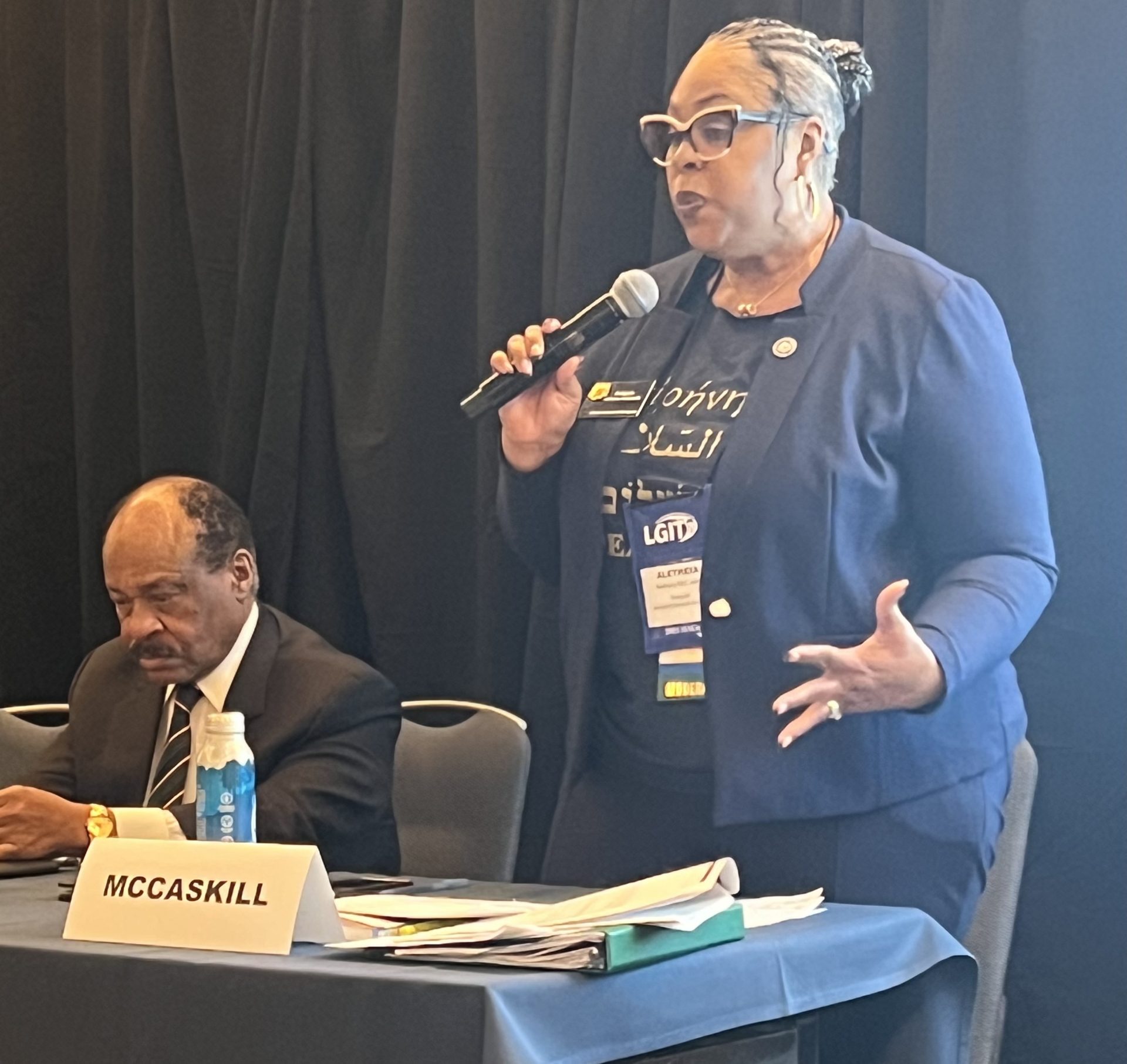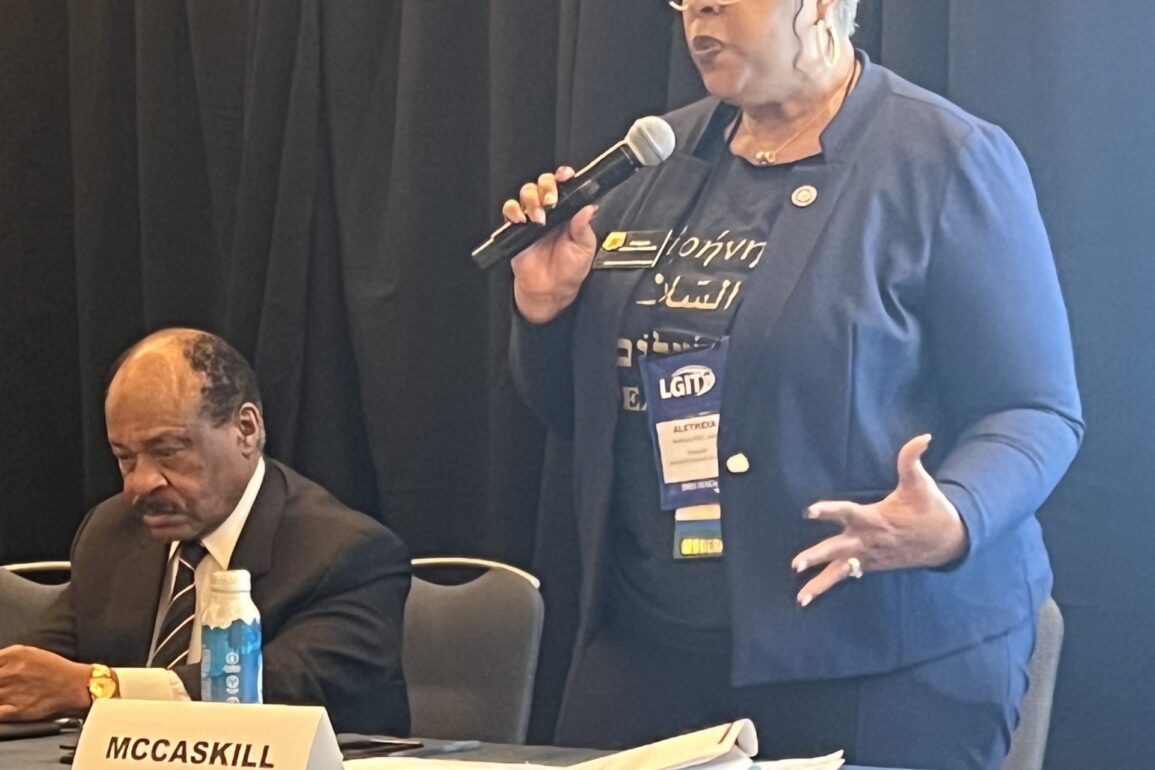
At the MACo Winter Conference, panelists explored the evolving conversation around reparations and its implications for Maryland communities. The session provided historical context, highlighted national examples, and emphasized the importance of transparency and community engagement in shaping equitable policies.
Delegate Aletheia McCaskill led the conversation and moderated an illuminating Q&A at “The Reparations Conversation: Considerations for Maryland Communities” session, framing the discussion as addressing past injustices and building a foundation for equitable policies shaping the future.
Moderator Delegate Aletheia McCaskill opens “The Reparations Conversation: Considerations for Maryland Communities” session at #MACoCon.
This panel explores how reparations policies are discussed and implemented nationally and locally.#MDpolitics pic.twitter.com/WhbC8oTqCL
— Kevin Kinnally (@KKinnally_MACo) December 11, 2024
Panel speakers included:
- Teisha Dupree-Wilson, Assistant Professor of History, Coppin State University
- Carl Snowden, Chair, Caucus of African American Leaders
Teisha Dupree-Wilson began the session by providing an overview of the historical context behind reparations. She then discussed how policies like eminent domain, systemic exclusion, and redlining continue to impact communities, underscoring the deep roots of intergenerational harm.
Carl Snowden followed with insights into grassroots advocacy and tangible examples of state and local reparations programs. He shared lessons learned from initiatives in New York, California, and other jurisdictions, highlighting how these efforts are beginning to address systemic inequities and support affected communities.
Key themes emerged throughout the session:
- The importance of engaging directly with impacted communities.
- Addressing intergenerational harm through thoughtful solutions.
- Learning from national initiatives to navigate challenges, including funding mechanisms and achieving political consensus.
During the Q&A, attendees focused on practical considerations, such as securing resources for reparations programs and building broad, transparent support. Panelists emphasized that local governments must approach this work with accountability and a commitment to long-term solutions.
Delegate McCaskill closed the session by reiterating that the reparations conversation is necessary and ongoing. State and local governments are critical in fostering equity, addressing historical harms, and shaping policies that benefit future generations.
The session occurred on Wednesday, December 11, 2024, at the Hyatt Regency Chesapeake Bay Hotel in Cambridge, Maryland.
More about MACo’s Winter Conference:


